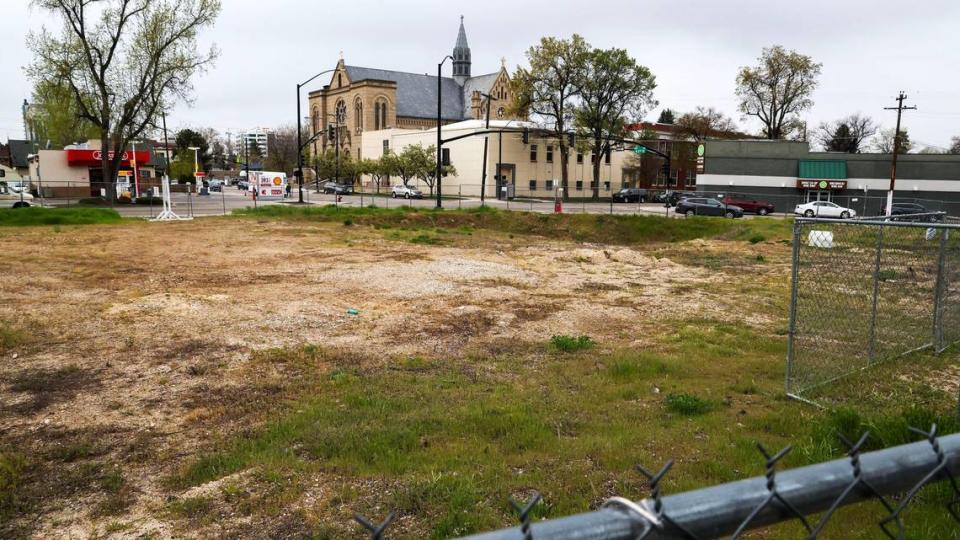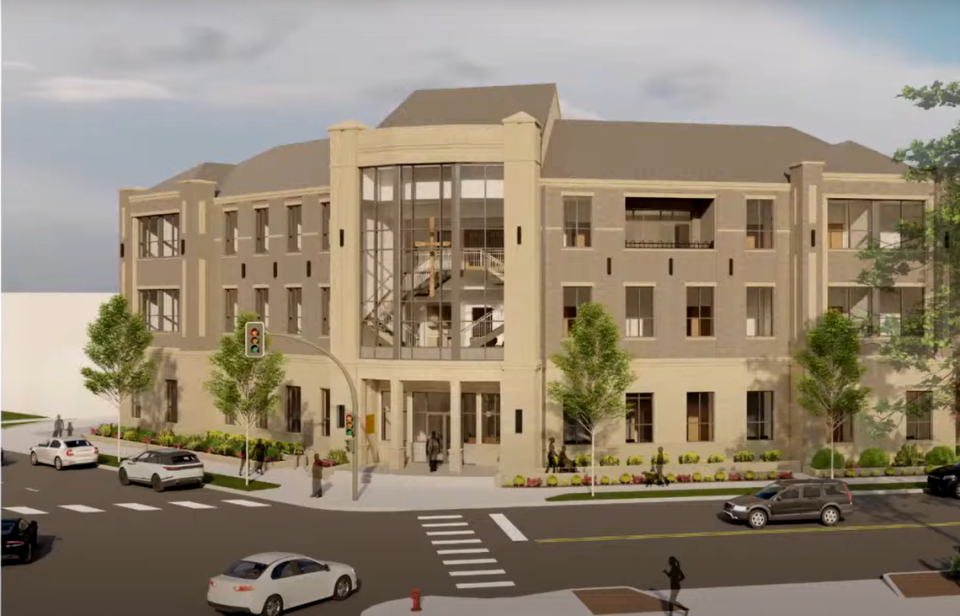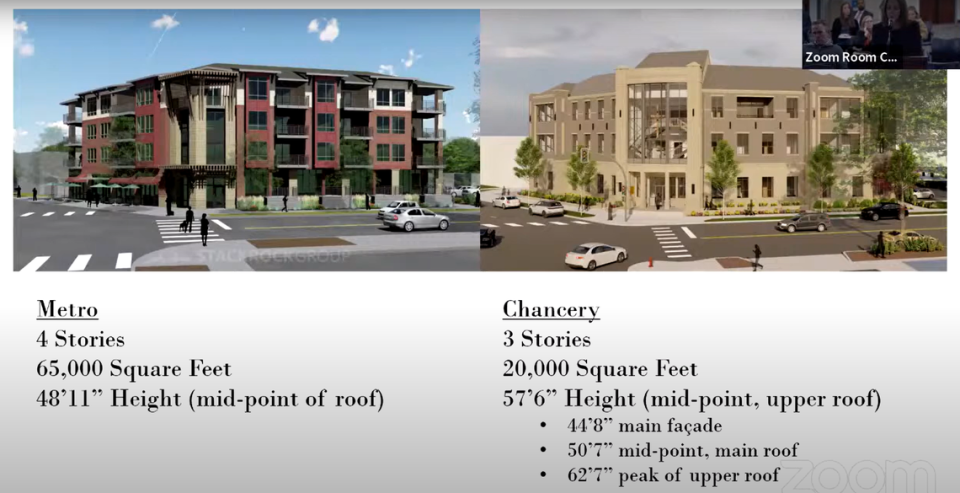A debate over the fate of Catholic Church offices — and an accusation of religious bias
After a City Council hearing about a proposed church office building, it seemed almost no one was happy with the outcome.
The Tuesday meeting was one of the final steps for Boise’s Roman Catholic Diocese to get approval for administrative offices it hoped to build at 902 N. 8th St. City Council members denied one of the church’s key requests: to modify an existing development agreement at the same site that would allow the church to use it just for office space, rather than a combination of office, commercial and residential space.
This decision “essentially kills” the project, Council Member Luci Willits said.
Willits, who voted against the denial, called the decision a “darn shame.” Christian Welp, the church’s director of special projects, called it a “major disappointment.”
Even the North End Neighborhood Association, which had opposed multiple aspects of the project — especially its height — was uneasy about the council’s approval of one of the church’s other requests: a conditional-use permit to increase the building’s height beyond what zoning allows.
“City Council seemed to be in favor of the height exceeding the zone, so that does allow the applicant to come back with a different design and still have a tall building there,” Erik Hagen, the association’s president, told the Idaho Statesman in an interview after the meeting. “So I’m not sure how that’s all going to pencil out.”
Mayor Lauren McLean expressed her disappointment, too — that a “key spot” in the neighborhood would likely remain an empty lot for the time being, and that some of the comments during the public hearing seemed biased against the church itself.
“Whether or not there’s a cross on a building that’s a private building should not be a matter of discussion or debate. Nor should it be if it’s a star of David, or a crescent, or anything else,” she said during the meeting. “I want to be clear that I really believe that had no place in the discussion tonight.”

The City Council decision came as a “complete surprise” to the church, Welp said, and a departure from the previous concerns the church had fielded over the project.
Public comments and neighborhood appeals centered around the three-story, 20,000-square-foot building’s proposed height of about 62 feet at its tallest point. Neighbors expressed concern that the building would tower over nearby residential properties.

No ‘ice cream shop’ in a church building
As council members weighed the church’s request to modify the development agreement, they decided the changes would be too significant to align with the original intent of the agreement. In theory, the church could return with a new proposal that meets the current agreement’s requirements to include housing or retail, but council members suggested this was unrealistic.
“The reality is, the Catholic Diocese (is) not going to put retail in the bottom of their facility,” Willits said. “They’re not going to put an ice cream shop. That’s not what it’s for.”
The church had sought to use the building for an administrative office. The site is across the street from the Cathedral of St. John the Evangelist, down the road from St. Joseph’s Catholic School and across the street from the Boise Co-op.
In 2017, the lot was slated for a building that would have included 31 apartments and street-level retail. At the time, its developer went through a process with the city to get the lot rezoned — a process that resulted in an agreement about how the space would be used.
That project fell through, and the diocese bought the property in 2020. It was trying to use the same development agreement David Southers, the original developer, made with the city, but with some modifications, for what it said would be an office for 35 people, and occasionally a gathering place for diocese events.

Hagen previously argued against the re-purposing of an old development agreement, arguing that the church was attempting to short-circuit city approval processes.
“If a 6-year-old development agreement that was never adhered to, a change of ownership and change of product type doesn’t warrant a revisit of the development agreement process, I don’t know what would,” Hagen previously told the Statesman.
Some of the discussion at Tuesday’s public hearing centered on whether the building should be zoned as a religious institution. City planners and the church’s representatives said it was simply an office space that would not be used for worship. The neighborhood association disputed this characterization, noting that all of the business conducted in the space would be related to the church.
“It’s owned by the church, it’s operated by the church, it’s across the street from the church,” Hagen said during the meeting.
Some residents oppose religious iconography
Residents voiced concerns about the design’s inclusion of religious iconography, in some cases suggesting that they did not support such an overt religious presence.
Katie Fite, a North End resident, said she was “just baffled” that this building was not being treated as a religious institution, She cited its design: “The building juts out and has a glass front, and inside is a very large cross,” which makes a “religious impression” in various ways. She accused the church of “over-pushing” religious iconography that would be “jutting in the face” of passersby.
April Frederick, another resident, said the proposed building “kind of comes off like a big Catholic welcome to the North End.”
Welp told the Statesman after the meeting that he was not surprised by these comments, having heard similar sentiments when the project went before the Planning and Zoning commission in February.
“There are people who don’t care for the church,” he said. “We weren’t trying to build a building that was in your face. We were trying to build a beautiful office building for us and for our community.”
Council members expressed the hope that the church would modify its plan for the space to fall in line with the existing development agreement. Welp told the Statesman he had “no idea” what the church’s next steps would be.
“We’re not in the landlord business, so as they said, having apartments, shops, retail … that wouldn’t make sense,” he said. “But that’s just my initial reaction. What we’ll do, I really don’t know.”
Catholic Church’s proposed building draws criticism in Boise’s ‘gateway to the North End’


